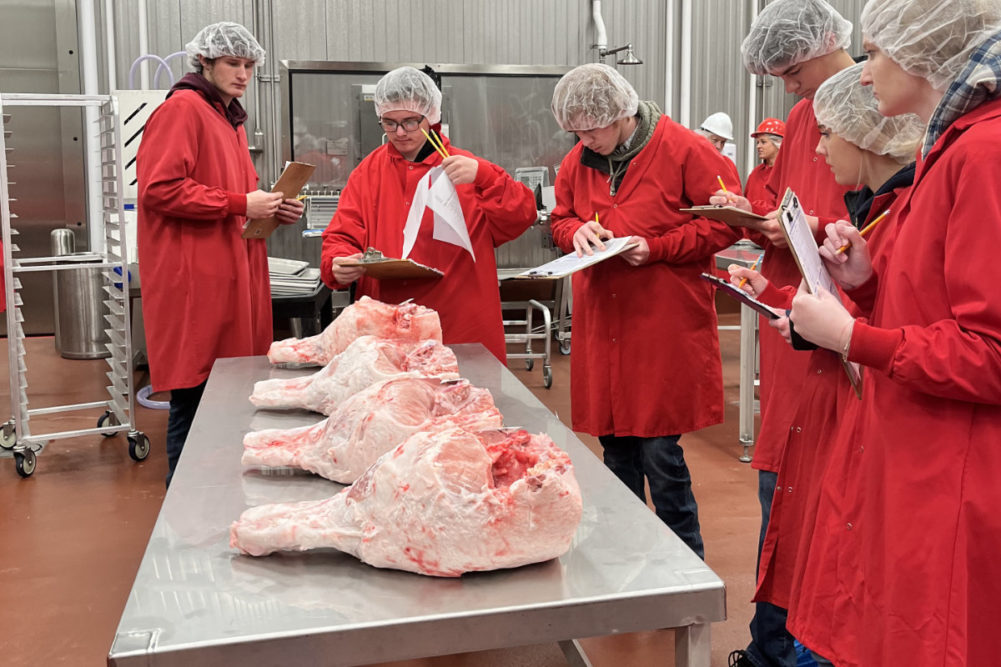RIVER FALLS, WIS. – The University of Wisconsin-River Falls (UWRF) and the Wisconsin Department of Agriculture, Trade and Consumer Protection (DATCP) announced on Sept. 19 that the two entities will develop a high school meat science curriculum.
The effort is part of the ongoing Meat Talent Development Program developed by the state.
“Wisconsin’s strong meat industry relies on a dedicated workforce,” said DATCP Secretary Randy Romanski. “This new curriculum will serve as not only a vital tool for teaching high school students about another important sector of Wisconsin agriculture but also help position meat industry jobs as a potential career path for these students to pursue after graduation.”
The project director will be Kurt Vogel, associate professor of animal science and director of the animal welfare lab at UWRF.
He described how the idea developed from a group conversation involving multiple University of Wisconsin campuses and DATCP and how that initial conversation brought together the team at UWRF that prepared the proposal.
“For many of us, this is a project that has substantial meaning because we found our ways to our current careers through meat industry-related opportunities and experiences,” Vogel added. “It is an honor and a privilege to help provide that spark for the next generation.”
Hannah Olsen, a graduate student who works with Vogel at the animal welfare lab, will also be instrumental in starting the project.
“I realized from my experiences in the classroom, both as a student and then as a teacher, that this program will have the ability to provide students and teachers with content not previously available,” Olsen said.
The curriculum will include modules that are being develop that meet state and national educational content standards. The comprehensive curriculum will include lesson plans, slide decks, worksheets, quizzes and two lab exercises. High schools can apply for a kit for essential meat processing equipment.
Kally Koch, the agriculture education teacher at the Riverdale School District in Muscoda, Wis., said she was able to develop a meat science unit for her students because she had family members with degrees in meat cutting. She knows of other instructors who are looking for this information.
“This will be a great program to help teachers who are new to teaching or new to meat science and would also provide additional support for those already teaching meat science to improve their curriculum,” she said.
David Kruse, the agriscience teacher at the Elkhorn School District in Wisconsin also noted the need for this program in rural high schools.
“The last two years have highlighted the importance of the meat processing industry in Wisconsin and across the country,” Kruse said. “Efforts of high school agricultural education programs to help create student interest in the meat industry to provide safe and high-quality meat products for consumers is an important part of helping the industry develop a stronger labor pool.”



